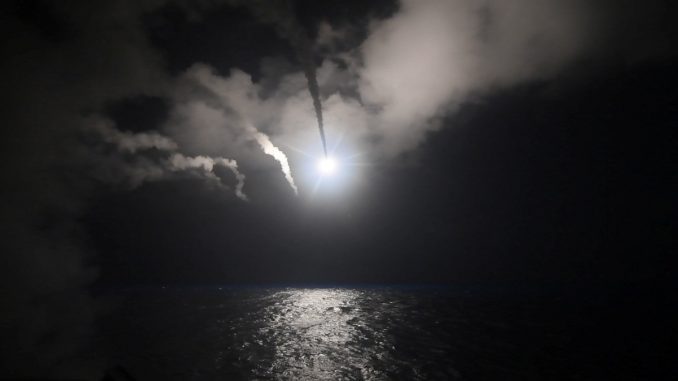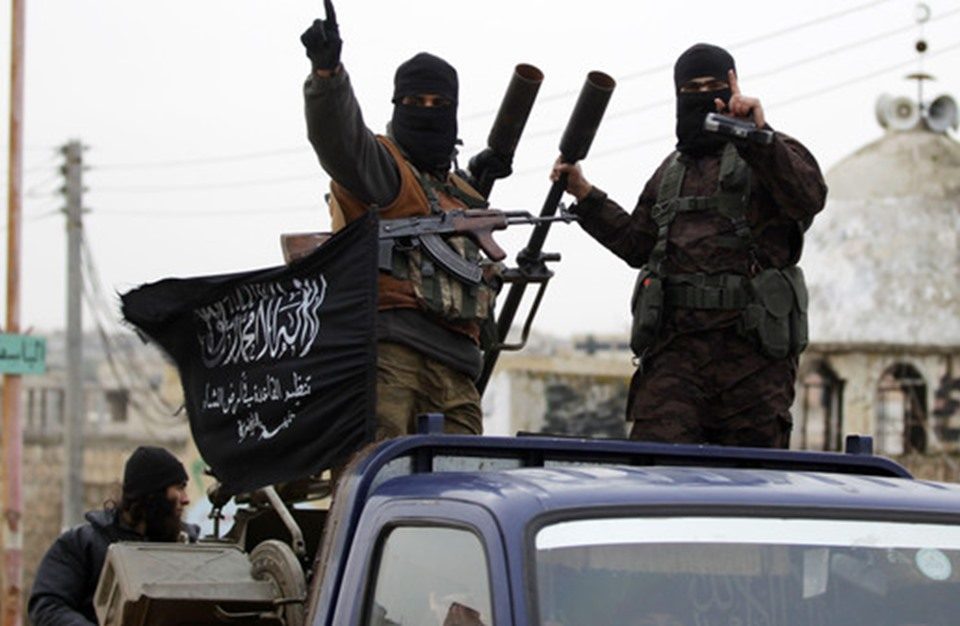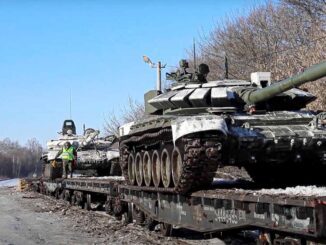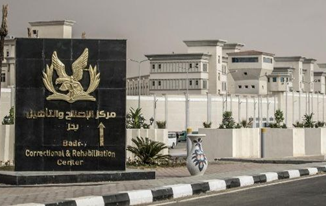
The US has escalated its external military operations in the latest weeks in Syria, Iraq, and Afghanistan describing them as necessary to protect the US interests and the internal security, while the US opposers like Russia and Iran see them as shows of power and pure provocations aiming at creating unrest in the world.
After Trump’s inauguration, the US military operations around the world escalated drastically and new troops were sent to the Middle East to take part in the US campaign against ISIS, steps that the US administration describes as a necessity for the internal security.
One of the most notable moves was sending new US troops to Syria, which resembled a huge departure from Obama’s policy for the region.
In march, A few hundred marines with heavy artillery have been deployed to Syria in preparation for the fight to oust Islamic State from its self-declared headquarters of Raqqa.
The deployment was temporary but is a sign Donald Trump’s White House is leaning toward giving the Pentagon greater flexibility in making routine combat decisions in the fight against ISIS.
Bashar al-Assad called these troops deploying to the country “invaders” because he hadn’t given permission for them to enter the country.
“Any foreign troops coming to Syria without our invitation or consultation or permission, they are invaders, whether they are American, Turkish, or any other one,” Assad said.
In another sharp escalation of the U.S. military role in Syria, two U.S. warships fired dozens of cruise missiles from the eastern Mediterranean Sea at the airbase controlled by Assad regime forces in Syria, after a chemical attack in Syria left more than 87 civilians killed and hundreds others injured, while Assad regime was blamed of carrying it out.
“Tonight I ordered a targeted military strike on the airfield in Syria from where the chemical attack was launched.”
“Years of previous attempts at changing Assad’s behavior have all failed and failed very dramatically,” Trump said after the strikes.
Russia condemned the strikes, saying Washington’s action would “inflict major damage on US-Russia ties”, according to Russian news agencies.
Russia has also claimed the victims were killed by toxic agents released from a rebel chemical arsenal and has pushed for an international probe.
“Problems will be taken care of”
A few days later, the US used its largest non-nuclear device ever unleashed in combat against Islamic State militants in Afghanistan.
To target what the military described as a “tunnel complex” used by the Isis’s Afghanistan affiliate, the US for the first time used what the military colloquially calls the “mother of all bombs”, the GBU-43/B.
Designed for destroying underground targets but not itself a deep-earth penetrator weapon, the GBU-43/B has the explosive yield of more than 11 tons of TNT. The massive bomb is dropped from air force planes and detonates before reaching the ground, resulting in an enormous blast radius. Only the Massive Ordnance Penetrator GBU-57, which has never been used in war, is a larger conventional weapon.
Asked whether he had authorized the bombing, Donald Trump said: “Everybody knows exactly what happened. What I do is I authorize my military. We have the greatest military in the world and they’ve done a job as usual. We have given them total authorization and that’s what they’re doing and frankly that’s why they’ve been so successful lately.”
Did this bombing send a message to North Korea? “I don’t know if this sends a message; it doesn’t make any difference if it does or not,” the president said. “North Korea is a problem, the problem will be taken care of.” He implied that China was “working very hard” on this issue.
Warning to the US
Russia, Syria, and Iran strongly warned the US on Friday against launching new strikes on Syria.
As he hosted his Iranian and Syrian counterparts in Moscow on Friday for a trilateral meeting focused on the Syrian civil war, Sergey Lavrov, the Russian foreign minister, said similar attacks would have “grave consequences not only for regional but global security”.
“We have reiterated our position and were united in stating that the attack was an act of aggression, which blatantly violated the principles of international law and the UN Charter,” Lavrov said.
“We call on the US and its allies to respect Syria’s sovereignty and refrain from actions similar to what happened on April 7, and which have serious ramifications not only for regional but also global security.
“We will not allow the peace process to be disrupted,” he added.
Lavrov said the US strike on the Syrian base has undermined peace efforts and reflects Washington’s focus on ousting Assad. “Such attempts won’t succeed,” Lavrov said.
Iran’s Foreign Minister Mohammed Javad Zarif said the participants warned that any unilateral action by the US is unacceptable.
The three countries are calling for two investigations, an independent probe into the chemical attack and another investigation into the US missile strike.
Syrian Foreign Minister Walid Muallem welcomed international inspectors to visit the base, which Washington claimed had served as a platform for the attack.
“The Syrian government repeatedly said it does not have chemical weapons. That is because they were all seized in 2014. What happened in Khan Sheikhoun is a fabrication and the Syrian air force did not target anyone with chemical weapons.
“We did not use them against terrorist groups or on our own people. We condemn any use of chemical weapons,” Muallem said.
“Show of force”
Russian media adopted the same speech as its administration, calling the US military operations provocative and quoting analysts who have the same view.
“It certainly was a show of force. Some people look at issues like this and say that they happen in a vacuum, that it only impacts that one region. That’s not true anymore,” an analyst told Sputnik news.
“The Americans didn’t even need to disclose this, but they did. They made the decision that they are going to go public with this issue.”
“This was designed not just for the theater, not just for Afghanistan. It’s also designed for North Korea. The United States has a battle group that’s moving towards North Korea as we speak. This is designed for Syria, certainly after 59 Tomahawks were fired there last week. This was designed for Russia so that Russia sees that the Americans are more than willing to fire off whatever it is they feel they are compelled to fire off,” he explained.
“The problem is that it’s completely unclear what it is that President Trump is willing to do. His reversals are extraordinary. We can look at what he said about NATO. Now all of a sudden NATO is great. During the election cycle he was saying that it was a disaster, that it was an anachronism that needs to be disbanded,” Rice said. “Number two. He was talking about Syria, saying we are going to focus on Daesh and we would ignore Assad. This was within 12 hours of the airstrikes themselves.”
The analyst further mentioned a U-turn on North Korea.
“Washington has recently adopted a hardline stance on Pyongyang, repeatedly saying that the United States could resolve the North Korean issue on its own if other nations, primarily China, do not make an effort,” Sputnik added.
“The war of words between the United States and North Korea has escalated after Pyongyang stepped up its military efforts, carrying out a series of missile tests and pledging to conduct its sixth nuclear test. As a result, Washington officially ended its policy of “strategic patience” toward the reclusive nation, saying that all options are on the table.”
“In addition, the US Navy sent its Carl Vinson Strike Group to the Korean Peninsula, prompting many to question whether Washington could carry out an attack against Pyongyang. These concerns have also been fueled by the Pentagon’s unexpected and unwarranted airstrike on a military base operated by the Assad regime forces last week,” Sputnik’s report finalized.



